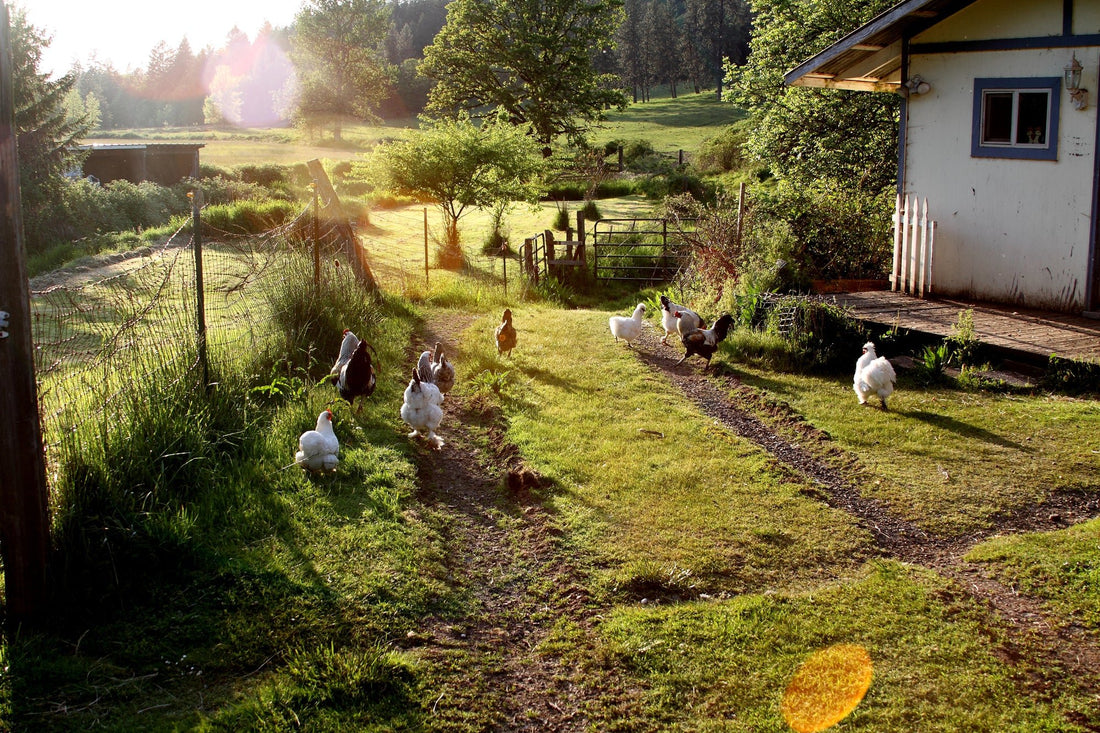Ever wondered if your chickens need a rooster crowing or an alarm clock to wake up? Or how they decide it’s bedtime without checking their smartphones? Well, chickens have their own built-in time-keeping talents that help them navigate the cycle of day and night. So, let’s embark on a clucking good journey to uncover how chickens, those feathered timekeepers, perceive and react to the daily rhythms of life!
The Early Birds of the Barnyard
Rise and Shine: The Chicken’s Morning Routine
Natural Alarm Clocks: Chickens don’t hit snooze. At the first hint of dawn, they’re up and about. This is thanks to their internal biological clock, known as the circadian rhythm, which is remarkably sensitive to light.
Roosters: The Original Alarm Clocks: Roosters crowing at dawn is not just a stereotype. They actually do it, and it's their way of saying, “Good morning, world!” It’s a natural signal that tells everyone in the coop that it's time to start the day.
Sun Time, Fun Time: Daytime Activities
Busy Beaks and Feet
Foraging Fun: Daylight hours for chickens are like a 9-to-5 job of foraging, scratching, and pecking around. They instinctively know that daylight is for eating, exploring, and maybe causing a bit of mischief.
Socializing and Sunbathing: Chickens also use the daylight to socialize with their flock and indulge in sunbathing. Yes, sunbathing! They love lounging in the sun, which helps them synthesize vitamin D.
Twilight Signals: Winding Down the Day
The Dusk Routine
Heading to Roost: As dusk falls, chickens instinctively start heading back to their coop. It’s their version of clocking out for the day.
Settling in for the Night: Once in the coop, they find their favorite spot on the perch. Pecking order plays a role here – the top chickens often get the prime roosting spots.
The Science Behind the Scenes
How Do Chickens Know It’s Time?
The way chickens instinctively follow the rhythms of day and night is a fascinating display of nature's intricacy. Have you ever marveled at how your feathered friends seem to have an innate understanding of time, without the need for clocks or calendars? Let's delve deeper into the mechanisms that guide their natural sense of timing.
Light: The Ultimate Timekeeper for Chickens
Sensitive to Sunrise and Sunset: Chickens have a keen sensitivity to light changes. As daylight begins to permeate the morning sky, their bodies respond to these subtle shifts, signaling that it's time to wake up and start the day.
Evening Light Fades: Similarly, as the light dims in the evening, chickens receive a natural cue that it's time to wind down and prepare for nightfall.
The Chicken's Biological Clock: The Circadian Rhythm
Internal Circadian Rhythm: Chickens, like many animals (including humans), have an internal circadian rhythm that follows roughly a 24-hour cycle. This rhythm is influenced primarily by light and dark cycles and regulates various physiological processes.
Regulation of Daily Activities: The circadian rhythm helps chickens to regulate their daily activities, such as feeding, foraging, and roosting. It's like an internal schedule that tells them when it's time to do different activities.
The Role of the Pineal Gland and Eyes
Pineal Gland: The pineal gland, a small endocrine gland in the brain, plays a crucial role in translating light signals into neural messages that set the circadian rhythm. It’s like the control center for their internal clock.
Eyes as Light Sensors: A chicken’s eyes are not just for seeing; they also help in sensing changes in light. This sensory information is then communicated to the brain, helping to synchronize their internal clock with the natural light-dark cycle.
Adjusting to Environmental Cues
Seasonal Changes: Chickens naturally adjust to the changing length of days across seasons. Their reproductive behaviors, like egg-laying, are closely linked to daylight hours.
Weather Influence: Even changes in weather, like a cloudy day or an early sunset, can slightly alter a chicken’s sense of time, demonstrating their fine-tuned sensitivity to environmental light cues.
In the world of chickens, time-keeping is an art and a science, finely tuned by nature. From the break of dawn to the quiet of dusk, chickens follow a rhythm that keeps them healthy, happy, and productive. So, the next time you see your chickens bustling about in the morning or heading to roost at night, remember, they’re just following their feathery internal clocks. No wristwatches needed for these punctual poultry! 🐔⏰🌞
